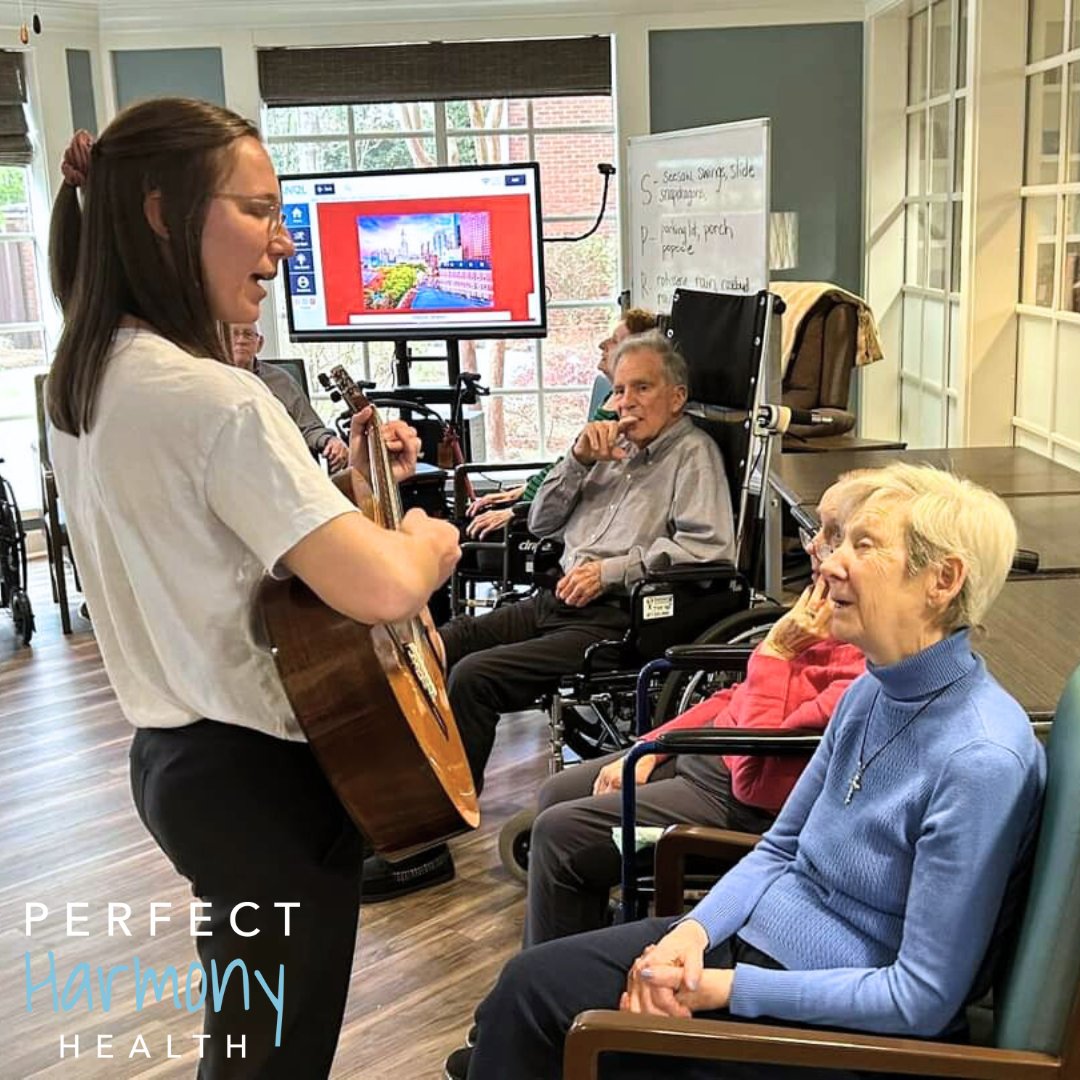Associative Mood and Memory Training (AMMT)®
To recognize Alzheimer’s/Brain Awareness month, let’s dive into a Neurologic Music Therapy (NMT)® technique that we are constantly using with our Alzheimer’s Disease (AD) and dementia populations. As neurologic music therapists, we are trained in the neuroscience of the perception and creation of music. We know that music can access memories through association with prominent people and events throughout one’s lifetime.
Associate Mood and Memory Training (AMMT)® “is a cognitive rehabilitation technique that uses music to enhance memory processes in three ways - by producing a mood-congruent state to facilitate memory recall, by activating associative mood and memory networks to access long-term memories, and by instilling a positive mood at both encoding and recall to enhance learning and memory function” (Thaut, 2014).
If you catch a music therapy session at a memory care facility, you will notice the use of music that is familiar to the residents engaged in the session. Research shows that those living with AD respond best to music that was popular in their early adulthood, though it’s not uncommon for songs that were sung to them as children, from their parent’s generation, to elicit memory recall as well. AMMT is based around two important concepts: mood-congruent memory and state-dependent memory. Mood-congruent memory is what the name implies - recalling information that matches one’s mood. For example, if music is chosen specifically to elicit a positive mood, an individual is more likely to recall memories of happy events from the past. Associations may be made between significant life events. The song “Can’t Help Falling in Love” by Elvis Presley may be tied to an individual’s wedding day, or the song “Rocky Top” is tied to one’s experiences in college. State-dependent memory may also refer to mood as in one’s mood “state”, but it also may refer to a specific time and place in which a memory occurs. Songs chosen from significant times and places relative to an individual may elicit these state-dependent memories.
Therefore, to access autobiographical memories related to family, work, travel, health, music must be chosen carefully to activate associate memory networks. Research has shown that the brain structures that are activated during emotional responses to music are also involved in reward and pleasure processes, making music an excellent tool for mood induction (Thaut, 2014). Through focused music listening and engagement, an individual may access the memories once lost and enhance their mood, leading to a better quality of life.
References
Thaut, Michael, et al. “Associate Mood and Memory Training (AMMT).” Handbook of Neurologic Music Therapy, Oxford University Press, New York, NY, 2014, pp. 314–330.


